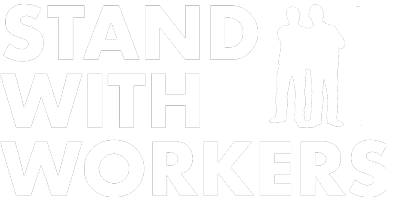6 Things Every Government Employee Should Know About Their Rights
If you work for a local, state, or federal government entity—a public school district, city hall, a state agency or another government body—you have the right to decide whether you want to join a union at your workplace. If you decide union membership isn’t for you, then you are not obligated to pay the union at your workplace any kind of dues or fees. The U.S. Supreme Court reaffirmed workers’ rights regarding union membership and support on June 27, 2018, in the case Janus v. AFSCME.
The decision to join or financially support a union is an important and deeply personal one for anyone who takes a government job. Before deciding whether union membership is right for you, it is important to know what’s at stake and what rights you have.
If you work in the government, your employer should inform you of your rights.
New hire orientation and on-boarding includes a lot of information. It can be overwhelming! You have decisions to make about retirement benefits, health insurance… and union membership. At the time you are hired, your employer – that is, the government body that you work for – should inform you of your right to join or not join a union and to pay or not pay union dues.
If you started working for the government after June 27, 2018, and were not informed of your right to refrain from union membership, then your Janus rights may have been violated.
You have the right to decide whether to join a union.
Almost all government workplaces have unions, and in many cases these unions have been in place for decades. Only you can decide whether you want to join the union and pay union membership dues. No one can pressure you to join a union, and your job is not at stake if you choose not to join or pay dues to a union.
You cannot be forced to pay anything to a union.
The Janus decision says that only union members can be charged union dues. If you are not a union member, no union dues or fees can be deducted from your paycheck. If you paid “fair share fees” or “agency fees” before June 27, 2018, you no longer have to pay them.
The government must get your permission to deduct union dues from your paycheck.
Under the Supreme Court’s ruling, “employees must choose to support the union before anything is taken from them.” This means that no union dues or fees can be deducted from your paycheck unless you have been fully informed of your right not to pay union dues—and have freely given your written, signed permission to have union dues deducted from your paycheck. If you signed a union membership application before June 27, 2018, you must give another signed permission to have your dues deducted.
Employer-provided benefits are not tied to your union membership status.
A common concern among government employees is that they will lose employee benefits such as health insurance and retirement if they decide not to be part of a union. This is not true. Any benefits offered to employees by your employer— the government entity that issues your paychecks—are available to you regardless of your union membership status.
You have a right to talk to your employer about your salary and benefits, union membership, and your Janus rights.
The Supreme Court required that you must be fully informed to give your permission to have union dues deducted from your paycheck; therefore, your employer must talk to you about your rights. The government cannot leave it up to the union to answer your questions. You have a right to speak to your employer about your employment choices, and your employer has a First Amendment right to speak to you, as well.
Need help?
Working in the government or taking a government job can be overwhelming – especially for those entering the public sector for the first time! Knowing your union membership rights is an important first step to making the decisions that are best for you.
If you believe your rights have been violated in any way or you feel coerced to join a government union, contact the Liberty Justice Center. We may be able to help.

